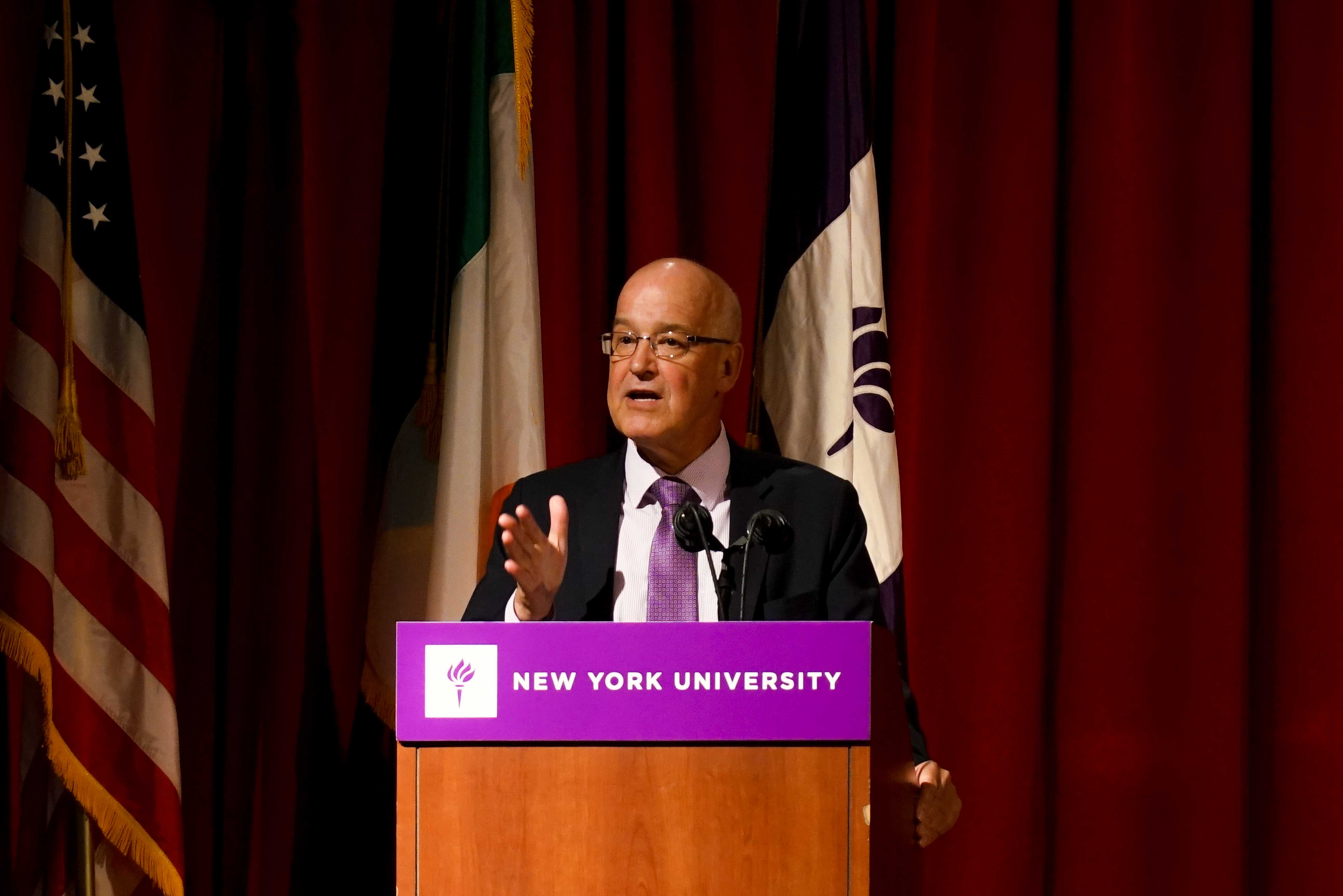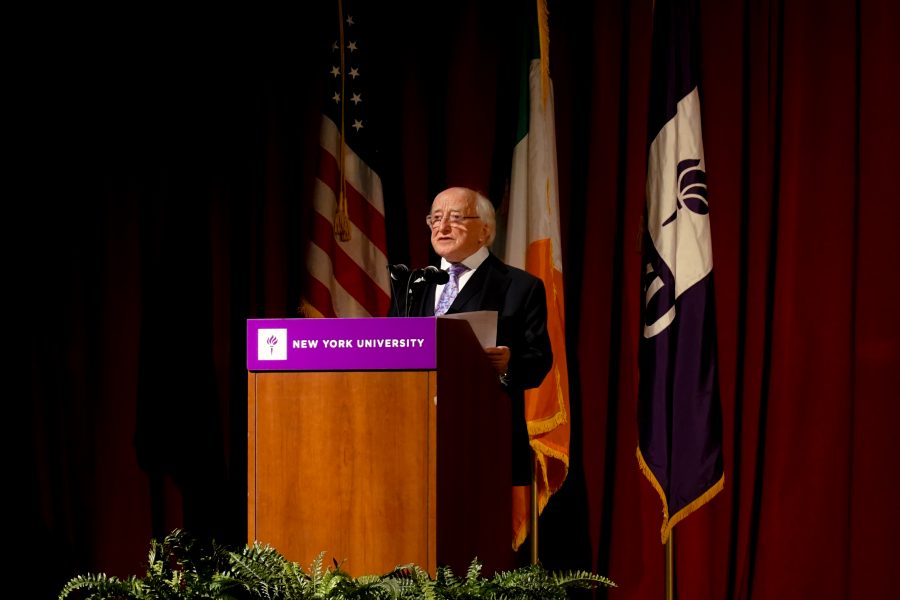A hushed silence came over the 400-plus audience members in the Kimmel Center for University Life’s Eisner and Lubin Auditorium in order to hear the President of Ireland, Michael Higgins, speak on Tuesday.
At an event partially organized by NYU Glucksman Ireland House — NYU’s center for Irish and Irish-American studies — Higgins addressed the importance of academia in encouraging global unity, something he said was essential in addressing issues like climate change and poverty. Higgins came to New York to attend the U.N. General Assembly, hoping to garner attention to Ireland in the U.N.’s multilateral system, according to a press release. In addition to speaking to NYU and Fordham University, Higgins will present a national statement to the general assembly and discuss providing international support for struggling small island states during the summit.
Higgins, a member of Ireland’s social-democratic Labour party, has been president since 2011 and was reelected to his second term last October. Known by constituents for his articulate speeches and progressive views, Higgins previously worked as a lecturer, university professor and poet.
Higgins spoke about how education evokes unity and collective efforts, which he argued were both key ingredients towards solving global issues such as climate and poverty.
“We see a unified consciousness that flows beyond borders: peoples and their governments from around the world dealing with global issues,” Higgins said. “These existential issues require global responses and a spirit of meaningful cooperation.”

Higgins’ long history with academia, specifically as a political science lecturer at the National University of Ireland, goes hand-in-hand with his administration’s focus on educational accessibility.
“With his literature focus and his poetry background, it all comes together beautifully,” said Gabi James, an Irish studies student in NYU’s Graduate School of Arts and Sciences who attended the speech.
In his speech, Higgins addressed the socio-economic implications that university education can have.
“University is a special place,” Higgins said. “Universities have a crucial role in helping students to develop their skills and knowledge, and thus provide an important basis for a broader and potentially emancipatory understanding of the interconnectedness of our social-ecological systems.”
Higgins referred to climate change as the most pressing issue facing the world. He expressed disapproval of the United States’ decision to leave the Paris Agreement — a U.N. climate change reduction plan — in 2017 and called upon the U.S. government to rejoin the climate accords after the 2020 election.
Higgins also spoke of poverty as a symptom of the destructive qualities of climate change. He expressed disapproval for the World Bank lowering the international poverty line to $1.90 a day in 2015, arguing that there are people living above this line who still face substantial malnutrition and low life expectancy.
Higgins emphasized that the only solution to these conflicts is global cooperation, a thread throughout his speech. He concluded with the same message.
“We need to keep speaking inclusively and intergenerationally,” Higgins said. “Let us commit ourselves together to the mind work involved, to the music of the heart we share, so that we may experience together the joy that comes to us and future generations in a sustainable, harmonious world.”
Email Lisa Cochran at [email protected].
























































































































































